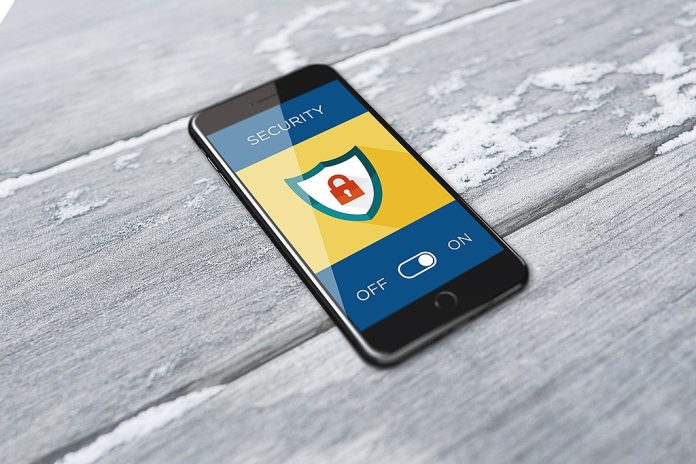The use of mobile phones has simplified life. Think of the device as a social network hub, storage device, mobile bank, photo gallery, audio and visual recorder, and navigational compass. Lives are pegged on the phones’ usage. That said, hackers can use the device’s multi-functionality to their advantage by accessing and stealing sensitive information.
Therefore, mobile device security is critical and should be treated as such. On this note, people need to be cyber-smart to protect their sensitive and confidential data.
Types of Mobile Cybercrimes
With incredibly high amounts of private data in smartphones, hackers have directed much of their attacks on the device’s hardware, software, and network connectivity to advance mobile-malicious activities in the form of:
Network Connection Threats
As a social hub, any smartphone must have Wi-Fi, Bluetooth, and cellular connections. Each connection point can, however, be exploited by attackers to pry at your data. For instance, man-in-the-middle attacks and Wi-Fi spoofing allow one to eavesdrop and sniff your encryptions. Your GPS also makes you susceptible to physical attacks.
Software Threats
Most users download apps and software, often free ones, or even buy, which most times are unsecure. Sometimes, hackers use valuable known apps through specific permissions to lead you to their malicious bait. An example is permission to access a phone camera or contact list. If you permit all requests, you risk creating a data leakage gap for attackers, especially if your phone security is weak.
And, there are programs always running in the background unnoticeably. Once launched, your data is at risk of manipulation.
Most app threats come in various forms, but trojans and adware are the most common.
Web-based Threats
Cybercriminals can create websites that appear legitimate and similar to those you often visit, where you are prompted to log in. Sometimes you receive phishing emails with links, which, when clicked, land you on fake websites. In most mobiles, hackers prefer using social platforms and text messages instead of emails for phishing attacks.
Attackers also use mobile ransomware to lock phone usage until a ransom is paid. Additionally, hackers can control your banking data through your mobile processing chips.
And others can stalk you through your location, call history, messages, photos, contact list, and browser activity through spyware, risking impersonation.
Physical Threats
Losing a phone is easy, sometimes inevitable, and often results in financial fraud, especially if it has no security measures and anti-theft tracking software. All your information will be at the discretion of its new owner.
How to Protect Your Mobile Devices Against Cyberattacks
To prevent or avert any cyberattack, consider these key highlights.
Use Strong Passwords and Biometrics
Biometrics such as fingerprint, iris, face recognition, and strong encryptions comprising long and complex alphanumeric characters can secure your smartphone. It is advisable to change the passcode regularly. Again, avoid the ‘remember me’ prompt while capitalizing on the two-step verification.
Avoid Public Wi-Fi
Public Wi-Fi is not secure, hackers can track your network traffic to get your passcodes and personal data. Secondly, it exposes your device to the many people connected. Therefore, never make any sensitive transactions on public Wi-Fi.
It is recommended to use your data plan when you cannot access a secure connection.
Alternatively, if you must use free Wi-Fi, ensure you install VPN on your mobile to encrypt your data and mask your online activities. Remember to turn off Bluetooth and Wi-Fi when not in use to prevent default connections to available internet.
Do not Jailbreak or Root Your Phone
Mobile phone manufacturers vet apps in their process. However, when unlocking their phones, many users remove unwanted default apps, bypassing security protocols and weakening their security. Jailbreaking or rooting can allow you to download and install apps from unsecure stores, posing a risk.
Use Antivirus Software
Typically, an antivirus regularly scans your phone for any new threat and viral mutation and cleans it to see to its security and cleanliness.
With the market awash with many antivirus programs, the best should protect you from gazillions of mobile threats and conceal your activities from attackers. Besides offering security and privacy, the Avira free antivirus improves your device’s performance by freeing up space and memory.
Update to the Latest Software
To improve the user experience, most mobile device companies release regular operating system updates, offering better performance and security from threats. With daily new threats, it is necessary to schedule manual or automatic updates to seal the new loopholes that hackers keep eyeing.
More Tips
- Back up your data and enable remote wiping of your phone. It will securely protect your data when you lose your phone.
- Make it a rule to always log out after using any mobile applications, especially those that link to your bank information and google applications.
- Always check your browser for the lock icon at the address bar for secure connections.
- Avoid turning on the autofill feature. This feature lets your browser remember and fill in your username and password.
- Use only trusted stores such as Apple’s App Store, depending on your mobile device’s platform.
- Exercise caution when using texts. Ransomware and phishing hacking often target message communications.

